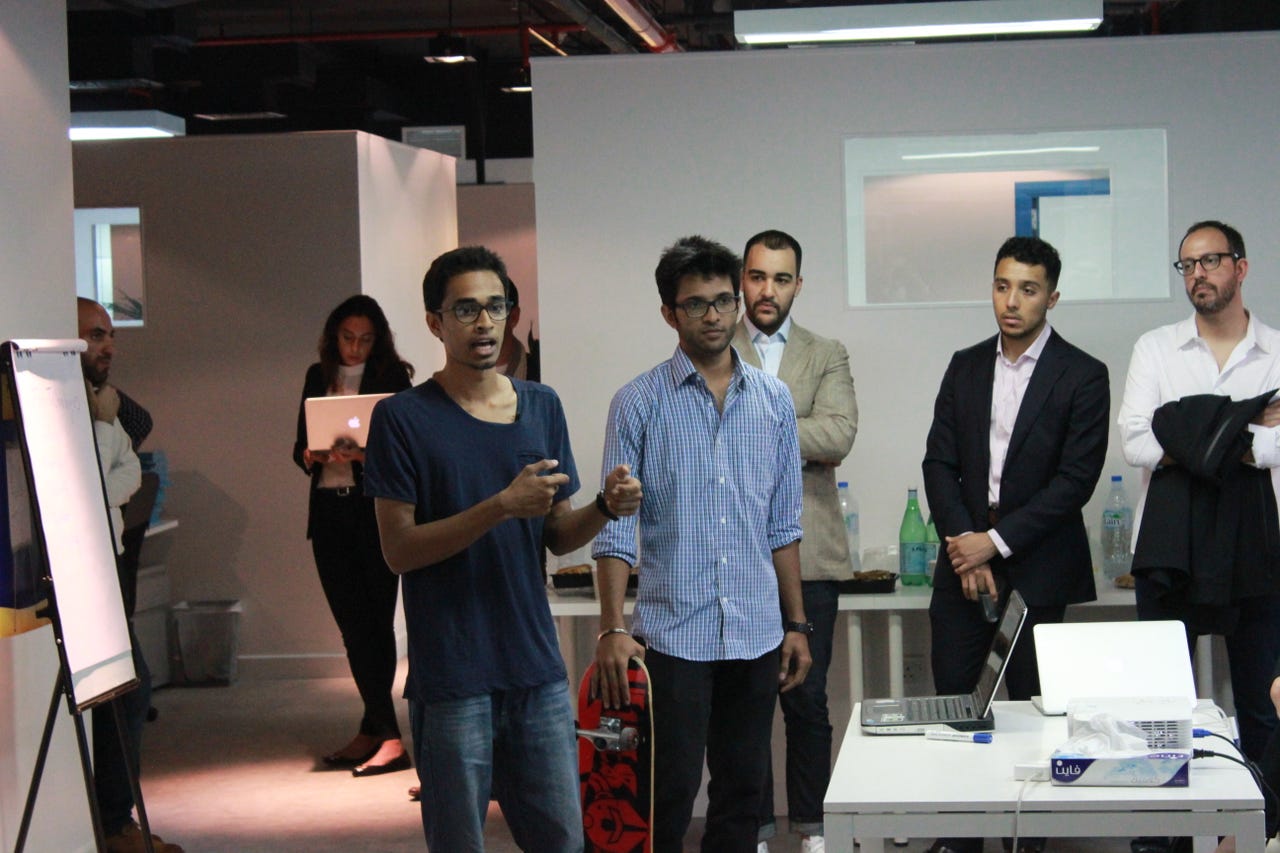Abu Dhabi's first tech accelerator opens its doors with skate wearables, fine art, and ambition


The six startups in the cycle are skateboard wearables firm Flip Technologies; a platform for 'verified hackers' known as GitHelp; Pavilion33, an online marketplace for fine art from the region; property portal Sakkini; and Kiddapp, a startup spinoff of Achtoons, an Italian animation production company which aims to create educational and entertainment apps for children and young people.
Moving forward, Flat6Labs Abu Dhabi plans to support 80 companies in the next four years, with each cycle - of which there will be two per year - supporting 10 fledgling companies.
Why UAE?
The UAE-based accelerator officially launched at the end of 2014 and opened its doors to the new intake earlier this month. It is the third location in Flat6Labs' expanding portfolio after Cairo and Jeddah. A fourth base in Beirut is scheduled to open next year.
For Ramez Mohamed, the CEO of Flat6Labs MENA and managing director of Flat6Labs Cairo, it was inevitable that the company would bring its model to UAE.
"The biggest markets [in MENA] are Saudi, Egypt, and UAE in terms of tech consumption and market size, as well as [in] startup engagement and support, so we were keen to move here because it is a special market," he told ZDNet.
Nina Curley, managing director of Flat6Labs Abu Dhabi, agreed. "Abu Dhabi is ripe for an accelerator," she said. "There's been evidence of a growing group of entrepreneurs in UAE, and there's very strong demand from abroad to come to UAE and set up companies."
Why Abu Dhabi?
Often overshadowed by nearby Dubai, Flat6Labs' decision to open in Abu Dhabi clearly surprised some. Mohamed admits that he often gets asked about the rationale behind the move.
"But for us," he said, "it wasn't a case of Dubai versus Abu Dhabi; it was about being in the UAE."
Moreover, as Mohamed noted, "Abu Dhabi is very interesting. It is the capital [of the UAE], it is one of the biggest economies in the region, and there is a lot of support from government for technology and innovation."
For Flat6Labs, some of this support has come in the form of a partnership with twofour54 - a tax-free media and entertainment-free zone based in Abu Dhabi.
Based on the fifth floor of twofour54's building, Curley believes that this proximity to other companies is potentially beneficial for Flat6Labs incubatees.
"The fact that there are over 100 media companies in this building makes it a uniquely cosy environment," she said. "We have already had people from across the building attend our sessions and lend their insights and that will only increase as the cycle continues."
Changing perceptions
Both Mohamed and Curley are enthusiastic about launching Abu Dhabi's first accelerator.
"There tends to be the stereotype that the local community is less entrepreneurial and that's just not true," Curley told ZDNet. "When you peel back the layers and look at all of the businesses that people are starting alongside full-time jobs, then you would be hard pressed to find someone who isn't developing a concept in their free time."
This is especially true in places like Zaid University, New York University, and INSEAD (which have campuses there), and Abu Dhabi School of Management, she added.
"Local students [are] coming out with ideas that they are looking to commercialise, and that's where we fit in to support the local community," she said.
The Flat6Labs model
As in Cairo and Jeddah, Flat6Labs Abu Dhabi will support startups very early on in their journey. Companies based at the accelerator will typically get between $30,000 and $50,000 in funding in return for 10 to 15 percent equity, as well as wider perks and benefits including access to assets from sponsors such as Microsoft, PayPal, and Amazon Web Services.
Accelerator participants also take part in a preliminary bootcamp, then move on to a wider four-month programme which focuses on product and market development, before pitching at a demo day to investors, media, and the wider business community.
Throughout the process companies receive one-on-one mentoring and weekly training opportunities, alongside what Flat6Labs describes as "a tried and tested curriculum that focuses on lean methodology and the essential elements needed to build a successful venture".Much of this is around "getting entrepreneurs to get closer to the customer. That's the number one thing entrepreneurs need to keep top of mind and need support with," Curley said.
In doing this, they encourage participants to ask themselves, 'Am I solving a real problem? How big is that problem and how painful is it for the customer?'
Startups also receive intensive legal support, an essential area too often overlooked by entrepreneurs.
"Legal is a key challenge for start-ups in terms of how to run the business, how to get more investors, how to raise capital and sign agreements," Mohamed said, "and our role is to help them overcome these challenges."
Moving forward
Unlike some startup support programmes in the region, Flat6Labs Abu Dhabi supports both Emirati nationals and global entrepreneurs.
"We have taken companies from Egypt, Italy, Russia, and India, as well as companies that have been based in UAE whose founders also come from abroad," Curley said.
"For them the opportunity is to get set up and scale in the UAE," she continued, adding that Flat6's role is also "to help them scale to regional and global markets".
In Cairo and Jeddah over 50 percent of graduates have received follow on funding from third party investors, Curley said, "and we expect similar rates in the UAE".
For Mohamed there's also the bigger picture: Flat6Labs is ultimately trying to create a network of startup hubs across the region.
"I understand how it is so difficult for entrepreneurs to establish a presence in another country in the region, even though they share the same culture and the same language," he said.
It's a long-term aim, Mohamed conceded, "but building these hubs and connecting them together will create endless opportunities and synergies".
"Just imagine what could happen."
Read more on startups